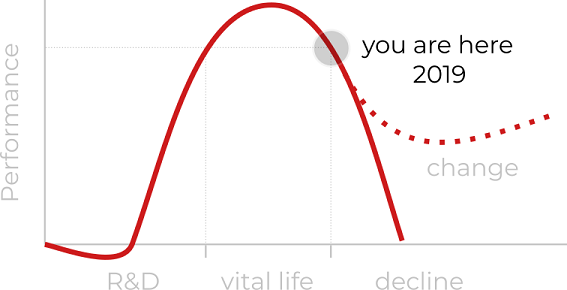#AcademicLife, #MakePublishingGreatAgain, #AcWri, #GetYourManuscriptOut, #AmWriting, #AmReading, #PhDchat, #ECRchat, #ScholarSunday, #Frelsi, #PublishOrPublish
Key points
- Trust in the journal quality assurance process is in decline as the traditional media are being marginalized in the excess of other scientific outputs.
- The momentum of a ‘research paper’ is stifling the work of authors as well as editorial boards, despite there are journals dedicated to applied science weighted by the impact factor.
- To avert the collapse of the traditional journal, additional publications options need to be added. The impact factor should be retired from decision-making about research quality.
The vast majority of journals across the disciplines rely on a research paper as the main vessel for reporting the latest scientific knowledge. Providing some variability, there are editorials, review papers, or book chapters. However, these are strictly under the control of the journals and mostly by invitation only. Part of the growing animosity towards the established publishers is the seemingly erratic assessment of perceived novelty, or lack thereof, by the editorial boards. There is a fair deal of elitism in novelty decision making, often leaving authors from less prestigious institutions confused. The publishing process is turning into a game of chances even in the fields as precise and analytical as Electrical Engineering can be.
‘Research paper’ reports on novel findings, and although we believe there is no limit to knowledge as such, in a finite world each paradigm is going through the phases similar to the technology life cycle (Figure). Right now, the research paper closely tied with a ‘journal’ as such, is behind the knee of the TLC curve and is declining. The decay is already felt by the authors in the form of waning reliability and trust in the blind peer review process as dependable quality assurance. The editorial boards feel the pressure a little less since they have control over the inner functioning of the journals, but as famous scientist Vannevar Bush (on the cover) said, “a belief may be larger than a fact.” The mountain of submitted papers leaves editorial boards scraping to find suitable reviewers.




Figure: Performance of a ‘Research paper’ as an effective medium to communicate the results of scientific research and development as a function of time.
Per usual, a solution to this complex issue and its ripples does not dwell in one, all-encompassing tool, or measure. As a part of the solution though, more paper categories should be introduced. Take an example of Electrical Engineering where adding Design paper, reporting on technically challenging tasks or designs would alleviate the pressure from both, authors and editors on the accounts mentioned. Yes, there already are journals giving space to applied science, but their impact factor and thus general regard in the community is lesser than a ‘proper research paper.’
It is important to understand that the number of application papers growing is a natural development of science - the knowledge being put into practice. Does that make these papers less valuable? No, because as much as truly novel knowledge, as scarce as it appears nowadays, helps develop and shift humanity forward, the application of this knowledge is equally important. The importance is a matter of our biases and worldviews. The applied science is an offspring of the basic science and should be embraced rather than suppressed by the journals averse to change.
The complexities of technological advances today totally deserve to be published. A Method paper type comes handy when modifications, novel applications of known methods, or applied procedures are to be reported. The connected world we live in begs for meaningful sharing, rather than just sharing dominated by social media. The decision whether to publish or not, should be on authors' discretion. Internet is overflowing with information, and common argument of 'too many papers' falls apart in the face of natural selection and readership of the audience. Great paper is a great paper, the rest will fall into oblivion anyway - no need to interfere. On top of that, even the household journals publish a lot of sub-par papers and yet boast to uphold the quality standard - confusion, pride, and conflict of interests.
No change is easy, and revolutions in systems as intricate as academic publishing are unlikely to happen. This is why we believe a meaningful ‘change’ on many fronts is sorely needed to reverse the decline of the journals. Evolution is what we need to push for, and each of us has the power to be the agent of change, we are. How about you?
You can comment when you sign in.